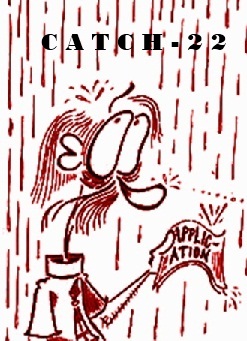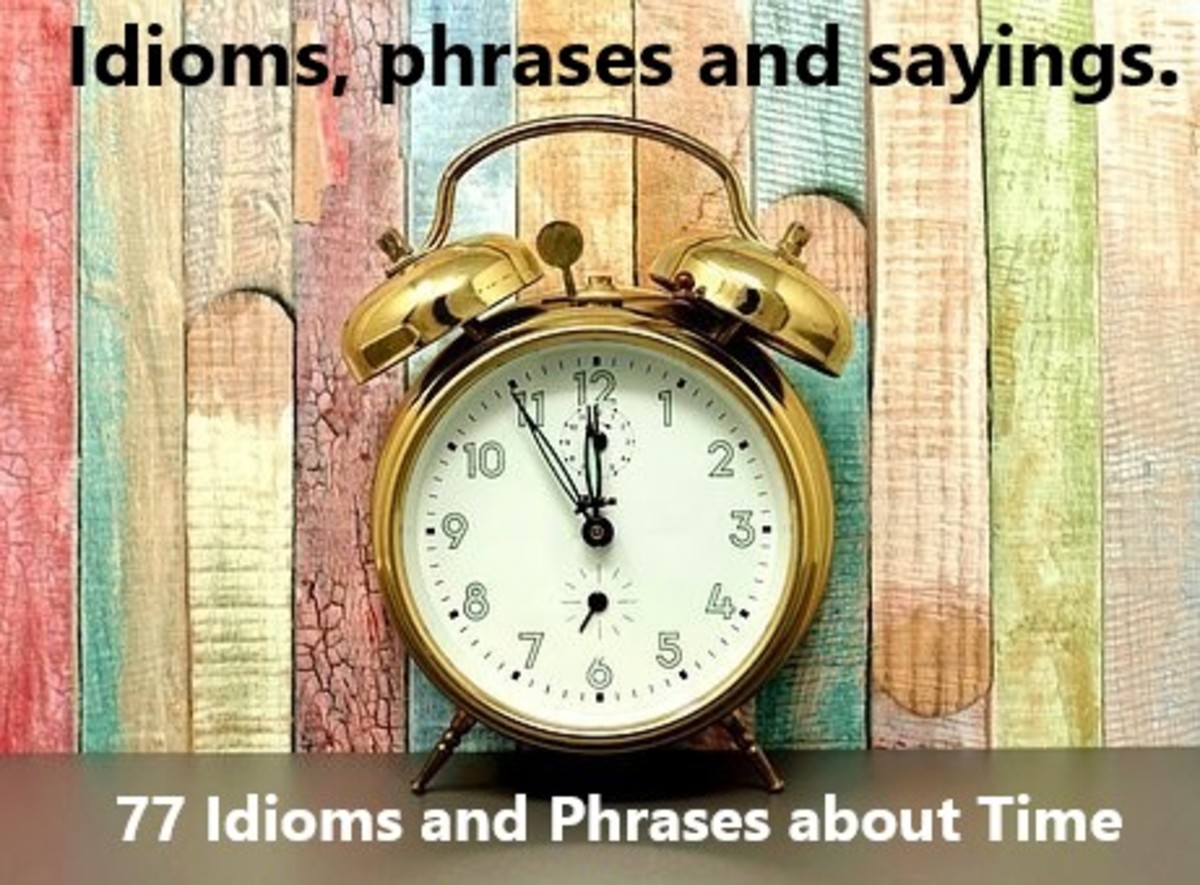Catch-22: An Old Phrase For New Times

Why We're Still "Caught"
Maybe you read it in high school and couldn't understand it to save your sanity. Maybe you saw the Mike Nichols movie and loved its crackling comic performances. Maybe you've just heard the phrase endless times and can recall a situation in your life (or work) in which the only choices open to you were equally injurious. All are good reasons for picking up the book again.
But if you're a college student graduating in or around 2014, the world confronting you now is one all-important reason to revisit it.
Often lumped in with other landmarks of 1960s American literature--especially Kurt Vonnegut, Jr.'s Slaughterhouse-Five and Ken Kesey's One Flew Over the Cuckoo's Nest--Catch-22 primarily concerns 28-year-old U.S. aviator John Yossarian, infamous around the squadron for appearing buck naked at ceremonies to receive decorations or censoring group mail by crossing out everything except the salutation in each letter. Despite his talents for evasive manuevers--whether getting away from anti-aircraft fire faster than anyone else, or spending indefinite periods in the hospital with fake liver sickness or pleas of insanity--he is nonetheless bound by the fabled principle that has permanently entered the English lexicon:
"[Catch-22] specified that a concern for for one's own safety in the face of dangers that were real and immediate was the process of a rational mind. Orr was crazy and could be grounded. All he had to do was ask; and as soon as he did, he would no longer be crazy would have to fly more missions ... If he flew them he was crazy and didn't have to; but if he didn't want to he was sane and had to." [p.46]
When the author died in December 1999, I was twelve. And like the narrator of the Rob Reiner film Stand By Me once said, "I never had any friends later on like the ones I had when I was twelve. Jesus, does anyone?"
And so, yeah, I read it. And read it again. And again, and again ... Not because it offered me any profound insight into our humanity, or supplied cheap laughs to get through difficult times. It reminded me of what successful people, from the beginning of their lives, are really are made of--not integrity and thrift and a self-effacing nature, but just the opposite: unearned social capital and instincts for self-promotion and opportunism.
Those quickest to consult Spark Notes, for instance, to forsake the detailed and nuanced messages of history and the authors we read in school, were often the first to get hired. Their smooth entry into the real world was predicated not on curiosity and a passion for discovery, but on how well they exploited the stability and privilege life afforded them to begin with. You had to be crazy to study hard, to want to read and think deeply for the sake of reading and thinking deeply, and sane if you didn't.
Catch-22 was far more than a '60s period piece or a cult favorite of college students. It awoke us to our dwindling attention spans (like aviators blindly bombing whatever target is assigned to them, even if it's their own base); our entrancement with modish but questionable theories and sciences (McKenna's "Novelty theory" would've been a target as much as the need for a group chaplain to pray for tighter bombing patterns); and our ability to casually recycle old prejudices, like rugged individualism and American exceptionalism, which saw resurgences in the 1950s, '80s, and early 2000s.
Reagan's dictum "government is the problem" and the deregulation of government agencies was alarmingly complemented by overweening military expenditures for peace-time, as Lawrence Wittner of the History News Network elucidates. George W. Bush's tax plans for 2001 and onward were essentially an homage to Reaganomics and the Trickle-Down Effect, which heralded an era of hardship for at least one generation just shrugging off their high-school cap and gowns.
It doesn't take an expert to see what Catch-22 isn't really a war novel, but a scathing rejection of the overconfidence of individuals in the institutions that govern their lives--what Louis Althusser would've called "Ideological State Apparatuses."

Why It Matters For 21st-Century Youth
Catch-22 reminds me of what a lot of college-age youth feel about ambition: cynical. As The New York Times reports, fewer of them decide get married, and upward mobility has not been one of their strong points, The Atlantic notes. They're mistrustful of internships, temporary positions, social entrepreneurships, student loan agencies, and other trappings of modern capitalism. They're often apathetic to politics because they know they're such ripe targets for ridicule and exploitation. They remind me of Major Major Major, the hapless squadron commander who makes it his mission to always do right by others ... and never gets it right:
"He was polite to his elders, who disliked him. Whatever his elders told him to do, he did. They told him to look before he leaped, and he always looked before he leaped. They told him never to put off until the next day what he could do the day before, and he never did. He was told to honor his father and mother, and he honored his father and mother. He was told that he should not kill, and he did not kill, until he got into the Army ... He never once took the name of the Lord his God in vain, committed adultery, or coveted his neighbor's ass ... Major Major's elders disliked him because he was such a flagrant nonconformist." (p.85)
The point being: the more seriously you take your job, your values, or your life, the less seriously you will be taken. If that isn't a catch, what is? To inherit deficits, international conflicts, and debts you didn't incur?
Alternatively, when contemporary college grads suffer the occasional pang of self-doubt (perish the thought!), there seems to be no way of reversing the tide. Their diagnoses are quick and damning, as is Yossarian's when he gets chewed out by the group psychiatrist:
"'I have very bad news for you. Are you man enough to take it?'
'God, no!' screamed Yossarian. 'I'll go right to pieces.'
Major Sanderson flew instantly into a rage. 'Can't you do even one thing right? ... The trouble with you is is that you think you're too good for the conventions of society. You probably think you're too good for me too, just because I arrived at puberty late. Well, do you know what you are? You're a frustrated, disillusioned, undisciplined, maladjusted young man!' Major Sanderson's disposition seemed to mellow as he reeled off the uncomplimentary adjectives." [p.302]
"OK," you may be thinking, "that's exaggerating a little. It can't be all that bad for our kids."
And you're right: as great satires often do, certain attitudes and qualities are exaggerated in the novel to prove the absurd truth of our contemporary prejudices. But if the charges of our popular media are any indication, from TIME magazine's "The Me Me Me Generation" (May 2013) to Mark Bauerlein's The Dumbest Generation: How The Digital Age Stupefies Young Americans and Jeopardizes Our Future (2008), the social and political climate isn't just grumpy or disappointed in the soon-to-be leaders of the world. Whatever their age, background, or level of material privilege, they're damned if they do and damned if they don't do what society demands.
Thirty years ago, Boomers and Gen-X'ers can often remember, a college degree was not necessary for individual success and upward mobility. (In some cases, such as Wendy's founder Dave Thomas, a high school diploma wasn't even required.) It takes no expert to see that isn't the case today. Not only is a college degree a requirement for a fair shot at success; the requirement has been all but rendered obsolete as our society continues to recognize only its unsteady "successes"--instead of its promising failures.






